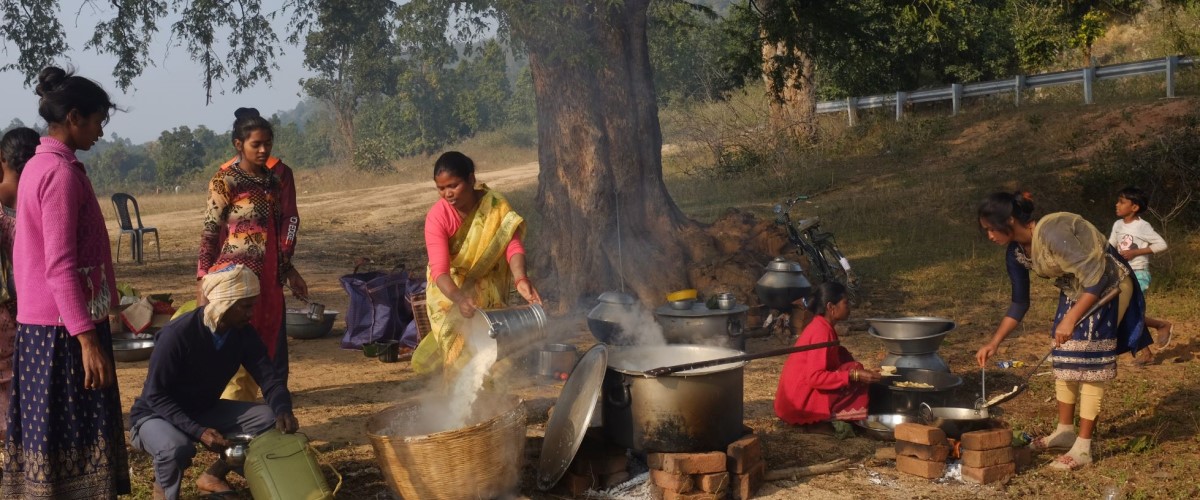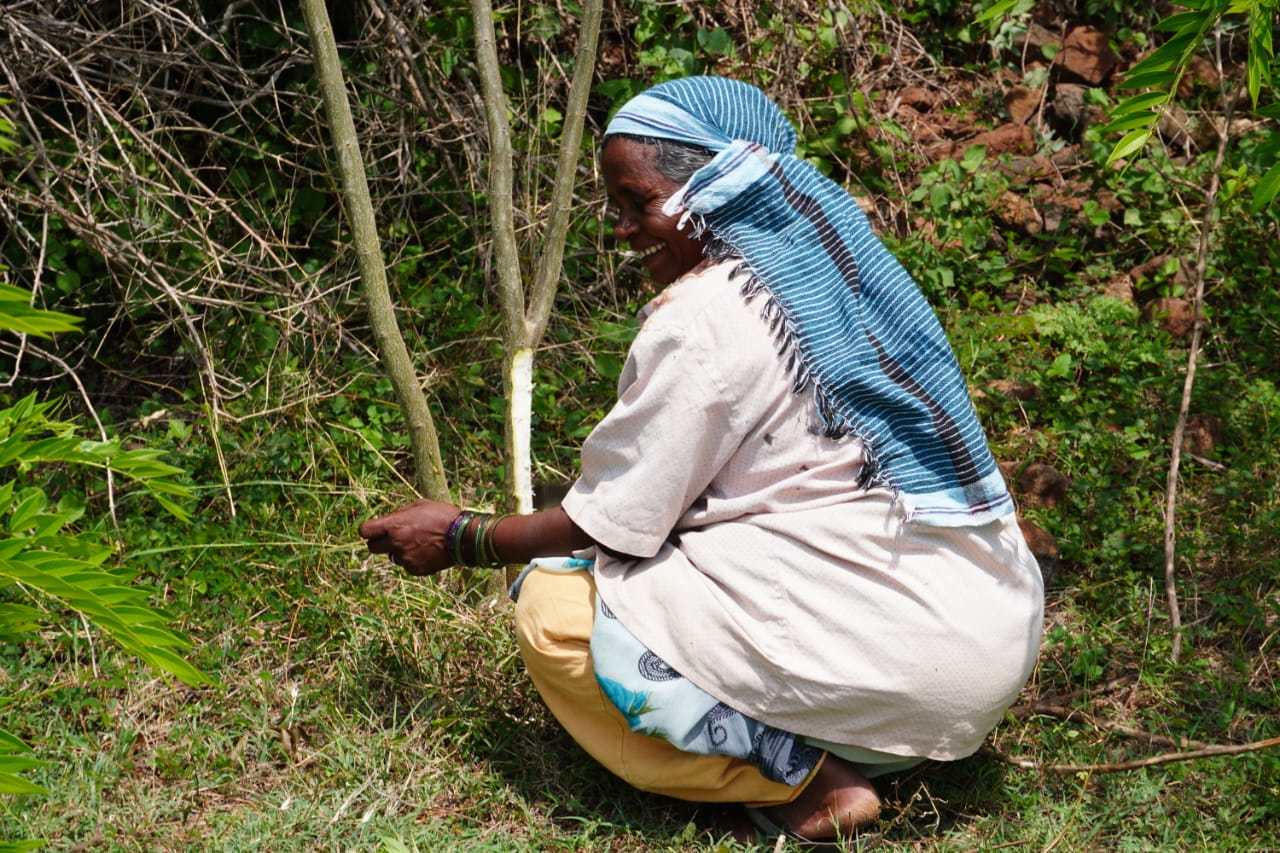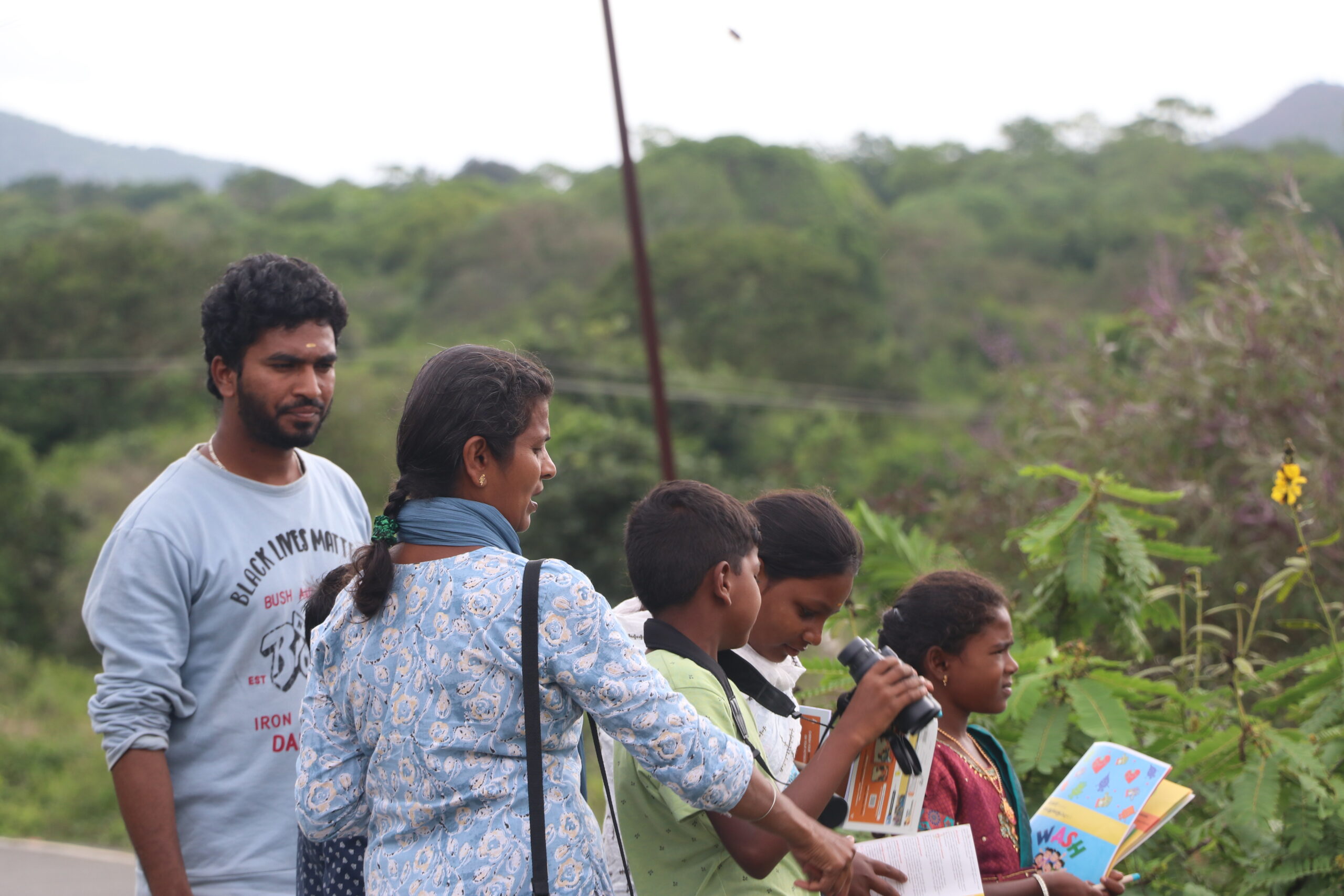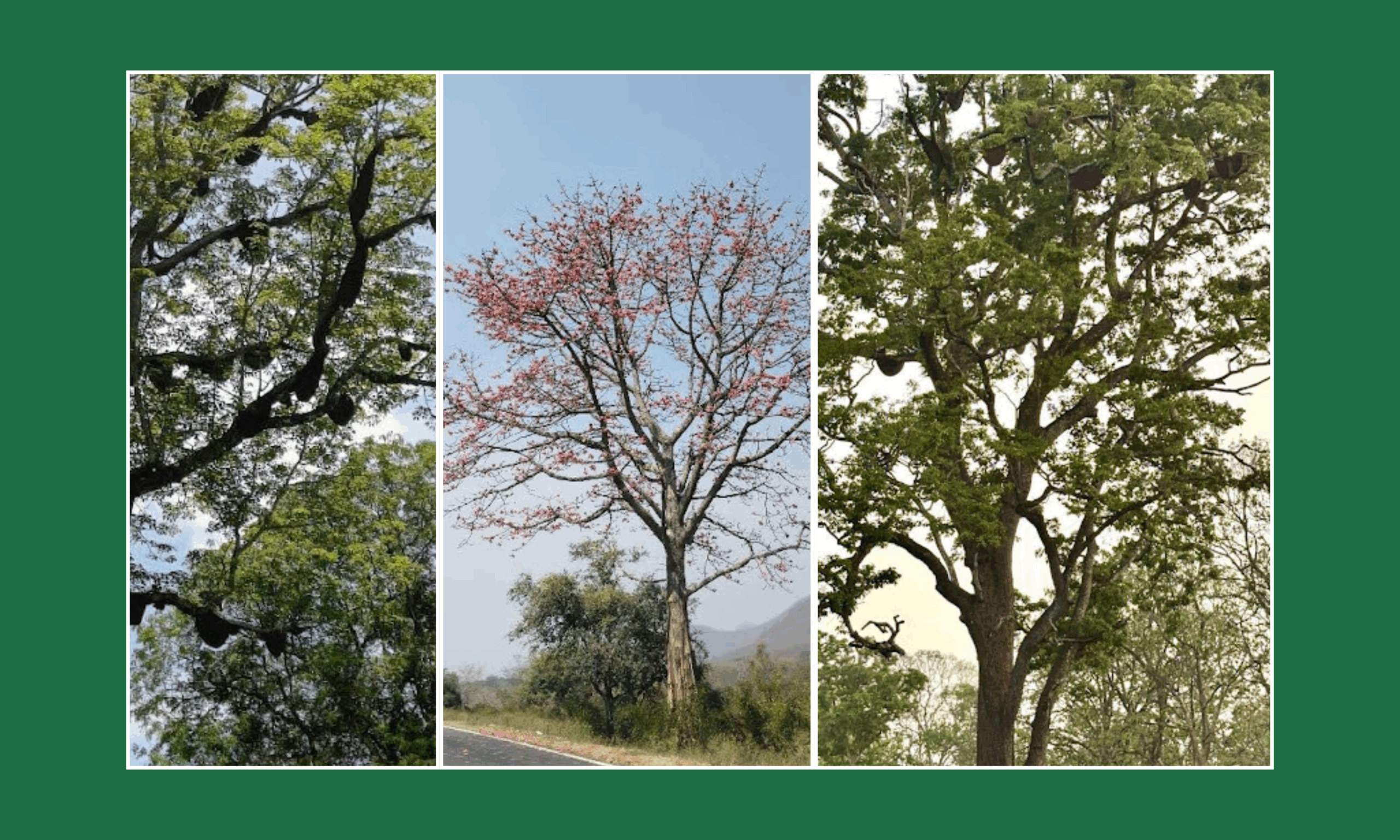December 29, 2023
By Rohan Mukerjee
Programme Coordinator, Networks & Alliances
The residents of Aksi and Chetma hamlets in Mahuadanr block, Latehar district, Jharkhand, came together to celebrate their rich agricultural and culinary heritage. Community Resource Persons Sandeep Lakra from Aksi, along with Sanjita Lakra from Chetma took it upon themselves to organise the event. They were supported by women and women’s groups from the hamlets. The mela welcomed over 200 participants, with 25 stalls set up by participants from Aksi, Sugaband, Aksi Porab Toli, Chetma, Chetma Dumar Toli, and Bhetar Chetma Korwa Toli. People of all ages and genders enthusiastically came together to celebrate the wealth and diversity of produce they get from their fields and forests. The crops and foods on display included –
- Traditional paddy varieties – agnisal dhan, kaldani dhan, rama dhan, sahabhagi dhan, jhingiya dhan, jeera phul dhan, goda dhan
- Millets – gundli (little millet), madua (finger millet)
- Wild and cultivated tubers – sakhin kand, ratna kand, simbal kand, ool, gethi kand, pitharu kand, dang kand, nakwa kand, kathora kand, pechki kand
- Fruits and vegetables – papita, kadu, kathal, mula, kadu sim, priya semb, kundru, kohda, ban khera, kanbad phal
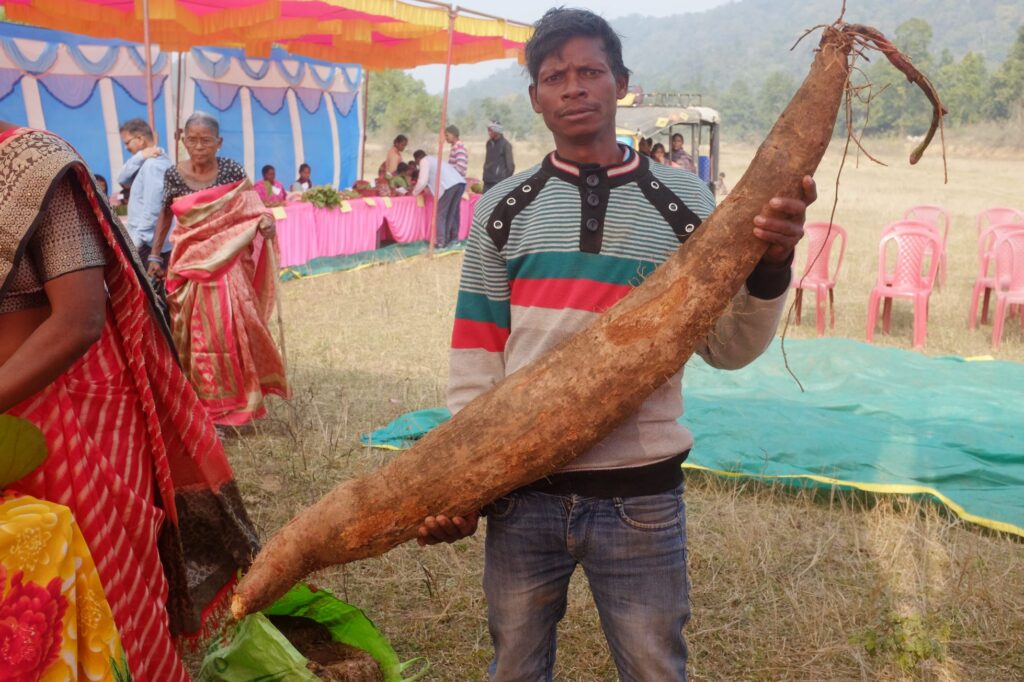
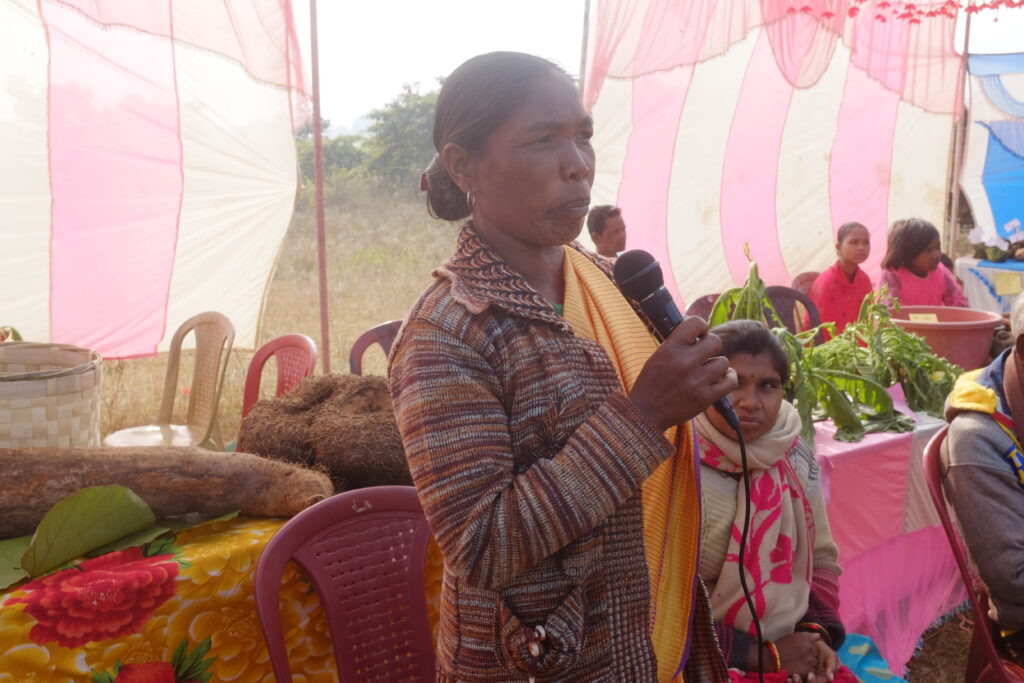
The centre of attraction was a giant specimen of dang kanda from the homestead of Renu Lakra from Chetma.
The mela was chaired by Aksi Panchayat Gram Pradhan. Marshel Beg raised a call for reviving, promoting and strengthening traditional agricultural practices, crops and food systems which was the focus of this event. He then called upon the women of Aksi and Chetma to perform a welcome song after which the ceremonial candle was lit to inaugurate the mela.
Rohan Mukerjee addressed the gathering with an overview of the work done by the Networks and Alliances programme, and the purpose and objectives of their work in Latehar. He emphasised the importance and benefits of traditional and natural farming practices, traditional food systems, natural resource based livelihoods and the need to come together to safeguard, promote and revive these practices especially when we are facing a variety of challenges like destruction of forests and natural resources, climate change and a scarcity of healthy and nutritious food. He shared that Keystone is committed to working with the communities of Aksi and Chetma to ensure community well being through promotion and strengthening of traditional and natural agriculture practices, consumption of wild and uncultivated foods, natural resource based livelihoods, ensuring rights to land and forests for local communities, effective community led management of water sources, strengthening community institutions and ensuring gender justice.
Community Facilitator Cordula Kujur that while Keystone had been engaging with the Nagesia community in Orsa Panchayat for around two years they had commenced work in Aksi and Chetma in 2023 itself. She emphasised that farmers should resist the temptation of switching to hybrid crops and the associated chemical intensive farming practices in a desire to achieve higher yields. She stressed that this switch brings with it a lot of problems and challenges which include negative impacts on health and well being, increase in conditions like diabetes and high blood pressure and other illnesses, and negative long term impacts on their soil and overall ecology of the area which will threaten the viability of their agriculture practices. She urged the participants to value the importance and benefits of their traditional foods and agricultural methods and conserve and revive these practices and traditions as they have ensured that we live a long and healthy life while modern agriculture practices with intensive use of chemical inputs has seen a rise weakness, illnesses and health problems.
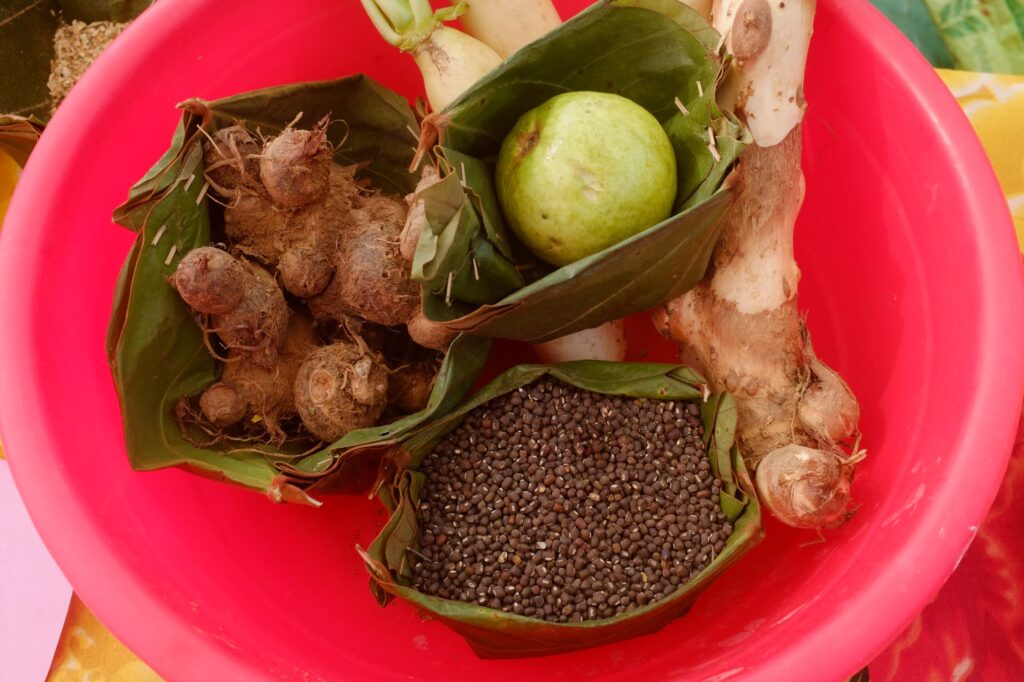
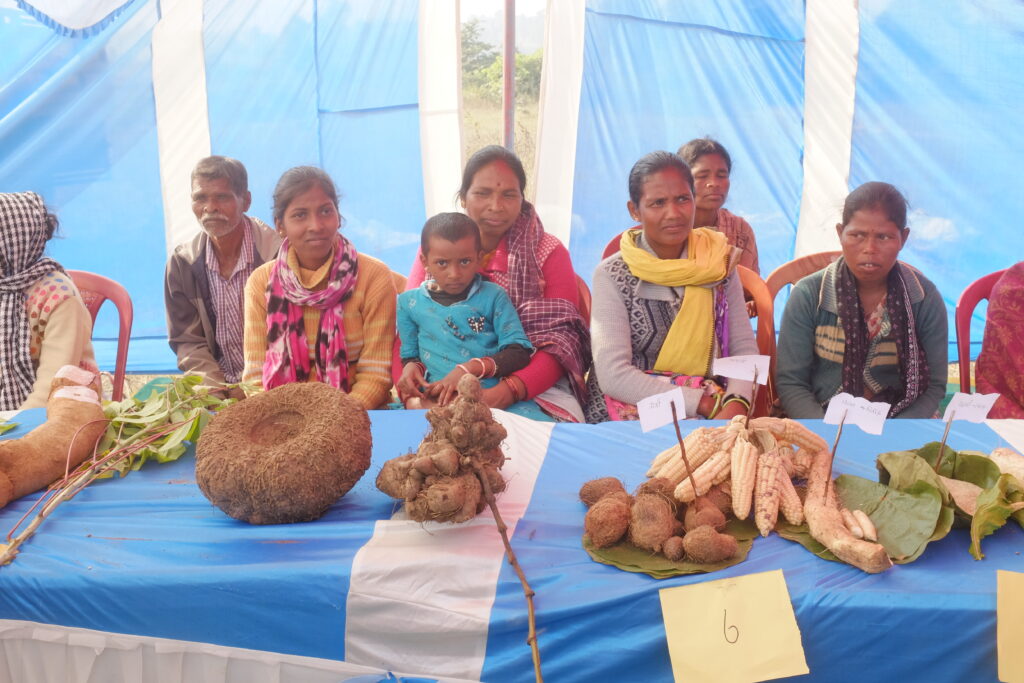
Manu Deo, the next speaker, emphasised that we should shift back to a natural way of farming and food production. He reiterated the need for a discussion on the challenges posed by hybrid crops and modern agriculture, and strategies to combat such systems.
The president of Jharkhand Adivasi Women’s Association (JAWA) urged the villagers to protect and safeguard their lands and not employ technologies and methods that will pose a threat to our land and public health. We should continue to produce, collect and consume our traditional foods like madua (and gundli that were passed on to us by our ancestors and in this manner protect and safeguard our culture and traditions.
Jagabandhu Sanda who is part of Keystone’s Eastern India initiative and hails from Chakulia, shared that once when he was conducting a similar training programme in Chaibasa a few young farmers did not accept the arguments he presented in favour of traditional and natural farming practices and declared that they would continue to cultivated hybrid crops with the application of chemical fertilisers and pesticides. He told them that their lands are their mother who feed and sustain them and applying chemical fertilisers is like poisoning your mother and this moved them and they pledged to give up modern chemical intensive farming. Jagabandhu asked those present if they would like to be cursed by future generations for destroying the land, forests and ecosystems by pursuing harmful forms of agriculture like chemical intensive farming. He urged the participants to take a stand and work together to promote traditional crops through initiatives like community seed banks and expanding the cultivation of these robust seeds on their lands.
The next speaker was youth leader Amla Kindo who has been working closely with the youth of the region and she shared that if we want to revive traditional and natural agriculture practices then we first need spread awareness among the youth. She shared that she herself has not eaten gundli chawal (little millet rice) and this is one of their traditional staples which is produced without the use of any chemical fertilisers only needing cow dung. So, there is a need to work with the youth to teach them all about their traditional foods and crops and how to cultivate, process and consume them.
Veteran activist Jerome Gerald Kujur shared that while he had not consumed gundli chawal he has had gundli handia (a local alcoholic brew) but that doesn’t imply that he is promoting drinking. He would just like to highlight that gundli has been a part of the region’s traditions and food systems and there is a need protect and promote gundli and other traditional crops and foods like preparations made using mahua. He was proud to share that he has noticed that women always come forward in large numbers to support and promote movements such as this movement for traditional and healthy food. He feels that men tend to assert ownership rights while majority of work especially with regards to providing food for their families is carried out by women and so it is good that women are coming forward and they should be supported and encouraged in their efforts. He also pointed out that water scarcity is a major challenge in their region with majority of farmers dependent on the monsoon for farming. If some arrangements could be made for irrigation facilities then farmers could carry out agriculture throughout the year which would help the region progress and develop.
The next speaker was Bimla Nagesia from Chiro Pat in Orsa Panchayat who has been associated with Keystone Foundation’s efforts for the last two years. She shared that in the past they cultivated many local and traditional crops like gundli, dangai (sorghum) and madua only using natural inputs like cow dung. But around 10 years ago farmers started shifting to hybrid crops with the use of chemical fertilisers, insecticides and herbicides. This is negatively impacting the soil and their health as well. So, she along with her community is committed to cultivate their traditional seeds and revive natural farming practices.
The Pradhan concluded the round of speeches by thanking all the speakers and acknowledging the efforts of all exhibitors by presenting them with a gamcha as token of appreciation. He urged all present to come forward to be part of this movement aimed at ensuring a sustainable and healthy food production system for us and our future generations.

